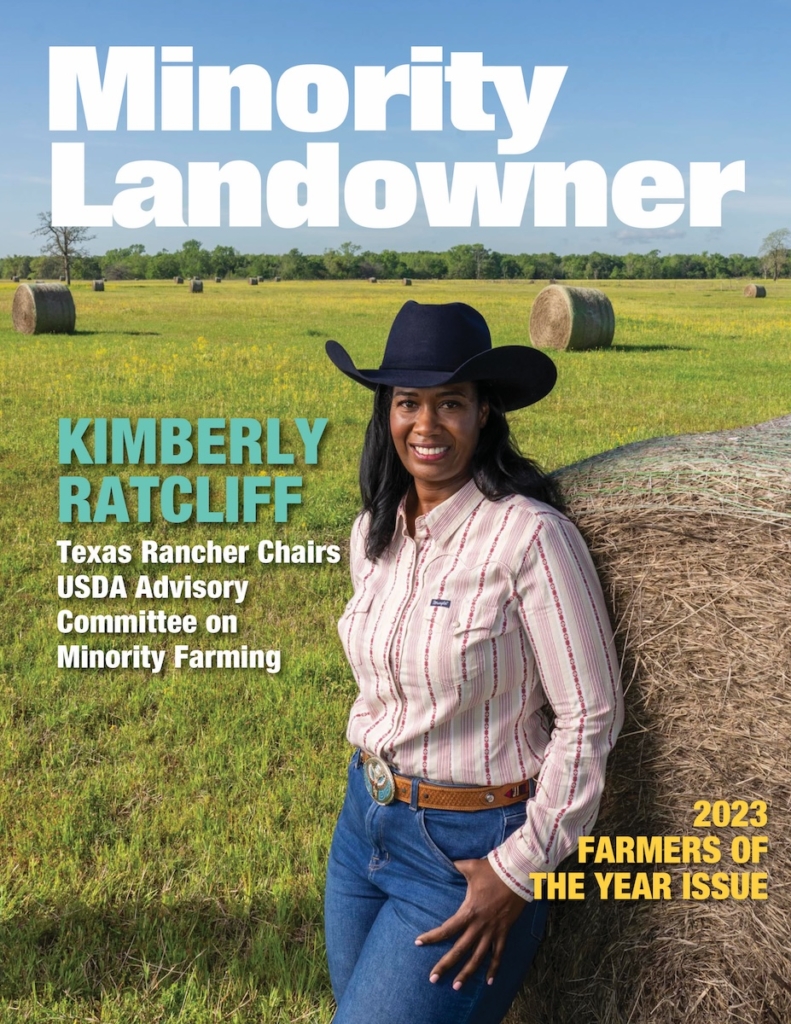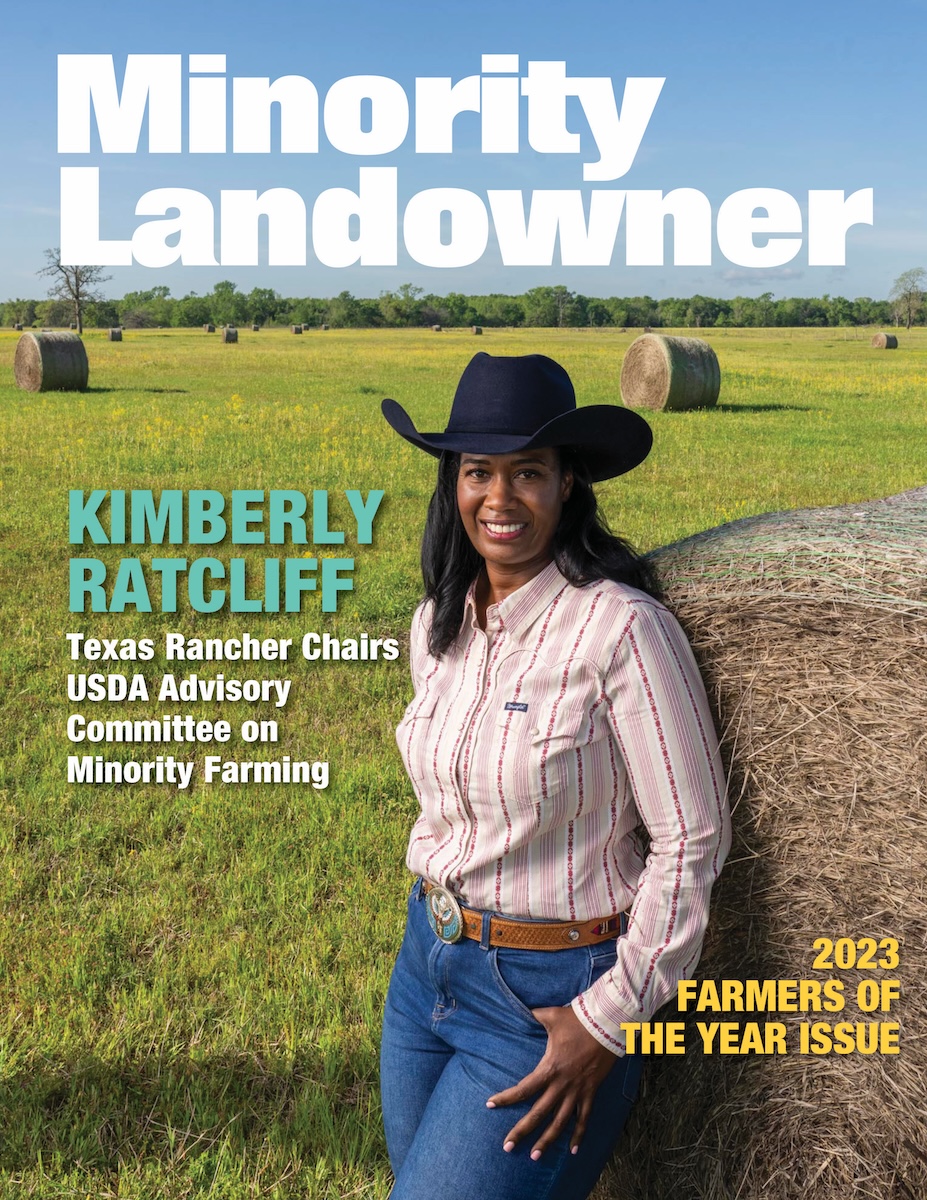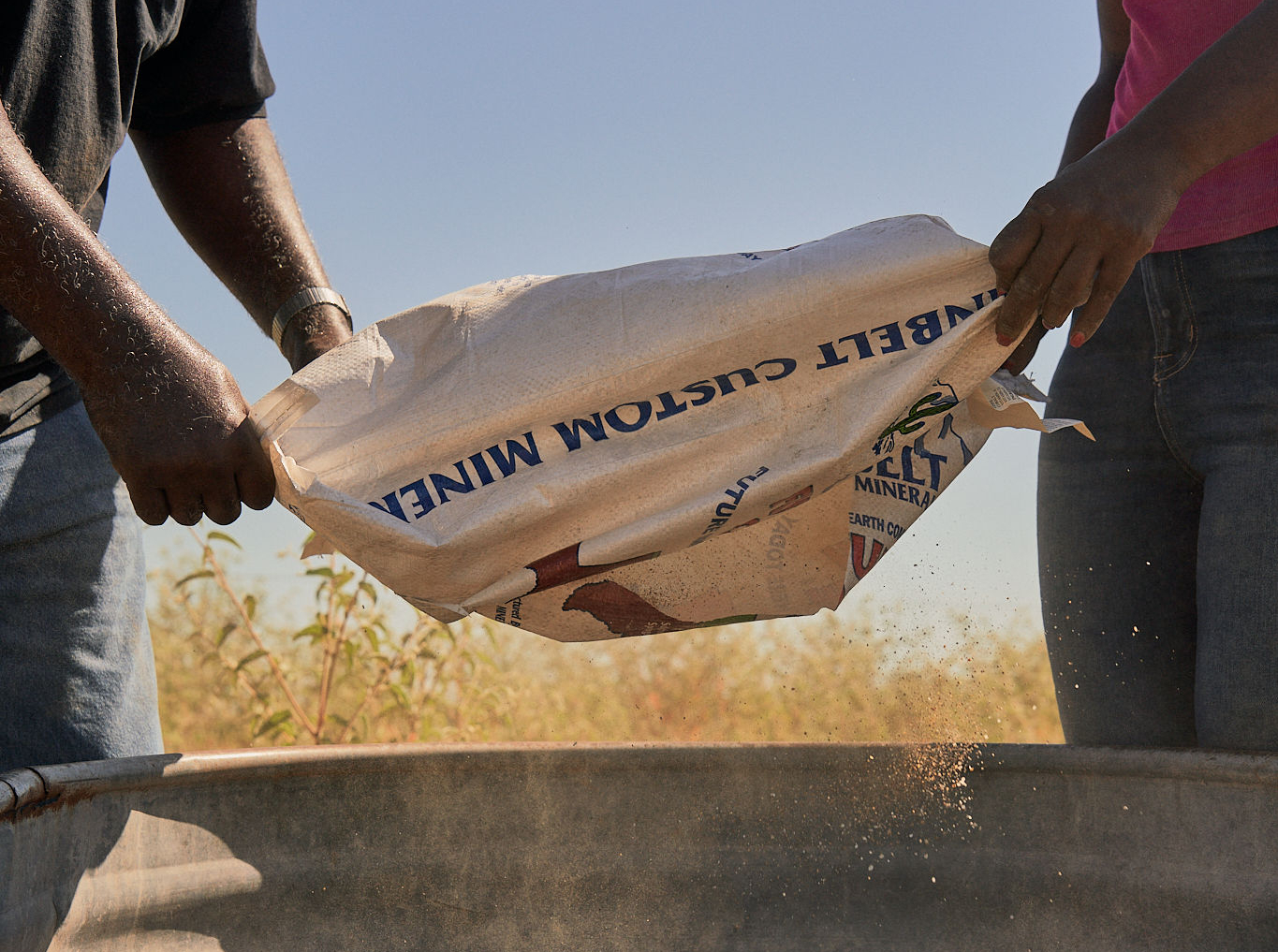an except from the full story
Kimberly Ratcliff is on a mission to make a difference and bring generational change to minority farming enterprises. In 2007, this mission began with a move from New York, New York, to Caney Creek Ranch in Oakwood, Texas, leaving the city to help other Black farmers and ranchers protect and build their operations despite their lived experiences — toiling and carving out a living. Fast forward to 2020 up to today, the Advisory Committee on Minority Farming (ACMF) synced up so well with these objectives Kimberly sought and acquired an appointment to the ACMF to make sure that the voices of minority farmers were always at the table. To understand her passion for the future of farming in America in general, and more specifically — the future of minority farming businesses, let’s briefly look at the history of Black farmers and ranchers in America and the inequities encountered throughout decades.

Kimberly focuses on Black agriculture because she is intimately familiar with this as one of few Black female ranchers in agriculture in the nation. We know that Black agriculture has been hampered by relentless systemic discrimination and land dispossession. Even after the period of slavery, many Black farmers and ranchers faced barriers and hurdles in appropriating land to begin fledging enterprises. Looking back, we know many were forced to work on plantations with no ownership or control over the land or animals. Even years later, once land was acquired, Black farmers and ranchers faced relentless discrimination, and racial violence, and ultimately lost control or ownership of their property.
These days, Black farmers remain at a systemic disadvantage to access capital or obtain financial assistance which is critical for any business venture — and even more for agricultural pursuits. The United States Department of Agriculture (USDA) seeks to address the inequities of their past when Black farmers were systematically shut out of funding assistance and loan programs. Black farming communities could not rise and barely thrived enough to take care of one’s family. The color of one’s skin made it doubly difficult to farm back then; building an enterprise was beyond their reach. Many Americans are blind to the condition of Black farmers and reject notions of equity and reparation because it is easy to do so — not having a historic reference to race in agriculture.
For the rest of the story, visit Minority Landowner Magazine and subscribe to their monthly issues.



